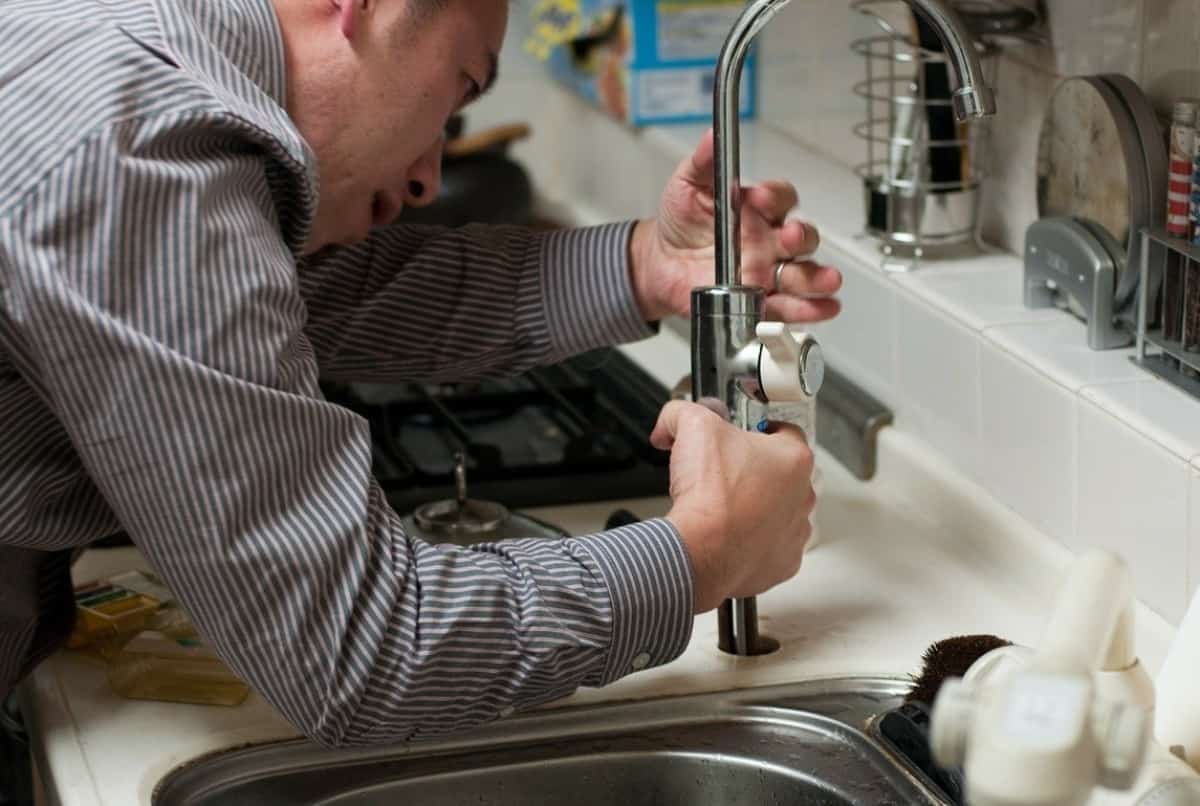Let’s state the obvious: the real estate market is scorching hot right now, with many homes selling in hours. This means that a first time homebuyer is walking into an overpriced and undersaturated market. This can lead to undesirable stress, questions, and a little bit of fear. That’s why we’re here to help you understand the real estate market and a guide to success.
So…Why is the Market So Hot Right Now?
According to CNBC, you can thank the pandemic for that. The newly accustomed ideology of work from home, and from anywhere, has prompted homebuyers to look elsewhere while retaining their job. Additionally, they reported that between the months of March and April, the Google search query “When is the housing market going to crash” spiked 2,450%. They also reported that the Google search of “How much over asking price should I offer on a home 2021” jumped 350% in one week.
If that isn’t indication enough, the housing prices have jumped 10% since 2020, a rate that hasn’t been that high since 2006. But, there is an ongoing problem within the housing market right now. There is a lack of affordable housing available, leaving many first time homebuyers feeling out of luck with nowhere to run. So, if you’re a first time homebuyer, what do you do? That’s what we’re here for. Follow along our guide to learn about how you can be ahead of the process, and some helpful tricks and tips.
Tip #1: Start Saving Early
The best thing that you can do to ensure success is to start saving early. The more money you have for your down payment is less that needs to be on a mortgage, and lower monthly payments.
So how do you know how much to save? Well, it depends on what you want to spend and how high of a percentage you want to put down on the house.
How to Budget
- Tip #1: Open a savings account, not an investment account. Investing can be risky, and if you’re saving for a home, skip the risk and protect your cash.
- Tip #2: Spend less. This can be done by making small changes to your lifestyle, such as eating at home more often and avoiding unnecessary expenses. Sure, we’d all love a huge television in a living room, but if it isn’t broken, don’t fix it. Instead, look at the money you’re avoiding spending at a restaurant and move it straight into savings.
- Tip #3: Consider additional costs, such as utilities, leisure, home insurance, property taxes, home owners association (HOA) fees, and potential repairs. If your monthly mortgage payment eats up more than 28% of your monthly salary, you’re spending too much on a home. Remember, it’s always better to over budget than under budget!
Don’t Forget About Closing Costs!
Closing costs are a pesky afterthought, oftentimes overlooked and an additional budgetary item. These costs include fees for commissions, appraisals and surveying, tax and title service, government record changes, inspections and certifications and transfer taxes. Additionally, look to spend for an origination fee for the mortgage lender and a specific interest rate charge. The average amount for closing costs rounds out to between 3% and 6% of the home’s price. So, make sure you save extra money for those charges!

Early Steps: Get a Preapproval Letter
While this isn’t a necessary step, it can be a very helpful step when dealing with a sellers market. The letter approves you for a loan amount, regardless of having a house picked out. Here are the necessary verifications and records for a preapproval:
- Income verification like a W-2
- Verification of employment
- Assets: 60 days of bank statements
- Debts
- Renters need to show payments for 12 months and landlord information for last two years (if applicable)
- Divorce decree and court orders to child support or alimony (if applicable)
- Bankruptcy or foreclosure documents (if applicable)
Lenders could require additional documentation if you own your own business.
What’s the Down Payment For a First Time Homebuyer?
Typically, there are a few different options for what your down payment should look like. These rates are indicative of your mortgage, so different mortgage rates require different down payments. Other factors, like the borrower’s credit score, can affect the percentage you need to put down. Nerdwallet lists these rates for a first time homebuyer:
- Fair Housing Administration (FHA) loans require as little as 3.5% down
- Veterans Affairs (VA Loans) usually don’t require down payments, but this is only offered to current and veteran military service members or eligible surviving spouses.
- USDA Loans also have no down payment requirement. These are designed for rural and suburban home buyers that meet the programs income limits and requirements.
- Conventional mortgages can require as little as 3% down
So why would you put more than that down?
Easy. When you put down 20% or more, you avoid having to get mortgage insurance. Mortgage insurance is added and can cost a couple hundred additional dollars every month- leaving you with a hefty monthly payment.

What’s a Mortgage?
If you’re buying or refinancing a home, chances are, you’re not going to pay in full with cash. That’s where a mortgage comes in! Mortgages are used in lieu of paying full price for a house. So, what’s the difference between a loan and a mortgage? Simply put, loans describe a financial transaction as a lump sum payment for anything. Instead, mortgages are used specifically for home payments.
For a first time homebuyer, there will be phrases and terms that might sound confusing. The three most common terms you’ll hear with mortgages are “lenders,” “borrowers” and “escrow.” A lender is the institution, bank, or credit union that is providing the mortgage. Meanwhile, the borrower is the one buying or refinancing a home. Another term you might hear with mortgage lenders is “escrow.” Mortgage lenders set up an escrow to pay for expenses like property taxes and homeowners insurance. The escrow account is then managed by the lender and operates like a checking account. There is not any interest for this account, but is instead used to collect money to send as payments for taxes and insurance on the lenders behalf.
Explore All Available Mortgage Loan Options
Do You Know Your Credit Score?
If you don’t know your credit score, you need to check that out for any potential setbacks. Lower credit scores can affect your ability to get a mortgage loan. If your score is low, don’t panic. There are steps to take in order to increase your score. For example:
- Get free copies of your credit reports and dispute any errors that are affecting your score negatively.
- Second, keep current credit cards open. Closing credit cards can actually lower your score. This happens because closing cards increased the portion of available credit.
- Additionally, don’t open a bunch of new credit cards either.
- Pay all your bills on time!
- Keep credit card balances as low as possible.
- Track your score to catch any errors as soon as possible.
- Aim for a maximum of 30% credit utilization monthly
- Consider consolidating your debt.

Pay for a Home Inspection
Having your home inspected before buying or moving in is crucial. You have a few options here, like including an inspection as contingency of a purchase. These inspections can allow you to have a firm understanding of any potential issues with both interior and exterior of the home. Wondering what the inspector is looking for? Here are common areas of concern.
- Foundation issues
- Sloping or grading of the house
- Termite damage
- Mold
- Garage structure for carbon monoxide
- Roof damage
- Plumbing
- Electrical
- Heating, Ventilating and Air Conditioning (HVAC)
- Appliance ISsues
- Fire Safety
Conversely, here are themes that are not covered with a home inspection:
- Inside of walls
- The inside of pipes
- Behind electrical panels
- Inside the chimney
Bottom line, a home inspection can cost you time and money, but you’re going to be happy that you did it. These inspections reveal problems that are costly, making sure you’re not buying a home that becomes a money pit. For first time homebuyers, these inspections give you the rundown and crash course knowledge on what you’re looking at for home maintenance and areas to keep an eye on. So how much do home inspections cost? The average cost in the United States is $400, but prices vary depending on the size of the home. Larger homes can run up to $600.
How to Negotiate a Price
There are specific things with the house that could cause you to negotiate with the seller on the price. For example, you could negotiate due to a roof that is in bad condition or repairs that need to be done. Some negotiations could be lowering the price to pay for future repairs, or negotiating with the seller to repair the home before closing. Additionally, trusting your realtor is key when negotiating. They are experts in the housing markets and have comparable prices to help bring a house price down. But, be wary. Putting in too low of an offer could cost you the house- so if you’re going to offer below asking price, make sure it’s a respectable price.

Purchase Home Insurance
Now that you’re officially a first time homebuyer, make sure you get on top of buying home insurance. There are some key tips for finding the best home insurance price and coverage for you and your family.
- Have multiple quotes
- Understand the quoting process
- Get to know the different forms of coverage
- Find out what home insurance does not cover
Trust ONIT to Find You the Best Deal
Whether you’re a first time homebuyer or seasoned buyers, we’re ONIT to find you the best rate. For finding home insurance that is budget-friendly with great coverage, call ONIT Home. We work directly with large and small companies, finding you the best home insurance coverage and cost. To learn more about how ONIT can find you the best deal, visit us online or call us today at 1-833-433-0331.
ONIT Home is your one-stop shop to create a space for families to enjoy. Bundle your purchases together for a $1,500 voucher to be used with our water filtration, security systems, or solar panels. Or, receive a $2,000 security system for $1,000 with a purchase of a water filtration system. Ready to go solar? Every solar panel system is a two week installation and comes with a free home security and water filtration system! Learn more about our bundling deals today by calling us at 1-833-433-0331. Whatever you need, we’re ONIT!



